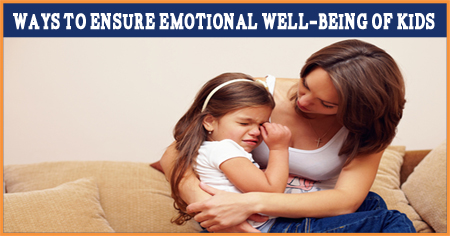
Joyful Hearts: Nurturing Emotional Well-being in Kids
Cultivating emotional well-being in children is a crucial aspect of their overall development. Explore effective strategies and practices to foster joy, resilience, and emotional intelligence in young hearts.
Building Emotional Awareness
The foundation of emotional well-being lies in building emotional awareness. Encourage children to identify and express their feelings. Create an open and supportive environment where emotions are acknowledged and validated. By understanding their emotions, children can develop the skills to navigate and manage them effectively.
Encouraging Open Communication
Open communication is essential for nurturing emotional well-being. Create a space where kids feel comfortable expressing their thoughts and emotions without fear of judgment. Actively listen to their concerns, ask open-ended questions, and engage in meaningful conversations. Establishing open communication fosters trust and strengthens the parent-child or caregiver-child bond.
Teaching Healthy Coping Mechanisms
Helping children develop healthy coping mechanisms is crucial for emotional resilience. Teach them strategies such as deep breathing, mindfulness, or engaging in activities they enjoy. These tools empower children to cope with stress, anxiety, or challenging situations, contributing to their emotional well-being.
Fostering Positive Relationships
Positive relationships play a significant role in a child’s emotional well-being. Encourage positive interactions with family members, friends, and peers. Teach empathy, kindness, and effective communication to enhance social skills. Strong, positive connections provide emotional support and contribute to a child’s sense of belonging.
Creating a Safe and Supportive Environment
A safe and supportive environment is paramount for emotional well-being. Ensure that children feel secure and loved at home and in other settings. Consistency, routine, and clear boundaries contribute to a sense of stability, fostering emotional security.
Promoting Play and Creativity
Play and creativity are powerful tools for emotional expression and well-being. Encourage imaginative play, artistic activities, and creative outlets. Play allows children to explore and process their emotions in a safe and enjoyable manner, contributing to their emotional development.
Addressing and Validating Emotions
When children express challenging emotions, it’s essential to address and validate their feelings. Avoid dismissing or minimizing their emotions. Instead, acknowledge their feelings, empathize with their experiences, and offer support. Validating emotions helps children feel understood and accepted, fostering a positive emotional environment.
Incorporating Emotional Education
Integrate emotional education into the learning curriculum. Teach children about different emotions, their triggers, and healthy ways to express them. Incorporate books, activities, and discussions that promote emotional intelligence. Equipping children with emotional literacy sets the foundation for a lifetime of well-being.
Emotional Well-being Kids at Petuniapicklebottom.org
For additional resources and support in nurturing emotional well-being in kids, visit Petuniapicklebottom.org. This online platform offers valuable insights, articles, and tools to help parents, caregivers, and educators prioritize the emotional health of children.
Celebrating Individuality and Self-Expression
Every child is unique, and celebrating their individuality is crucial for emotional well-being. Encourage self-expression and allow space for children to explore their interests and passions. Embracing their individual strengths and qualities contributes to a positive self-image and emotional resilience.
Joyful Hearts, Resilient Futures
In conclusion, nurturing emotional well-being in kids is a continuous journey that involves building awareness, fostering positive relationships, and teaching valuable coping skills. By incorporating these strategies into daily interactions, we contribute to the development of joyful hearts and resilient futures for the children we care for.
Explore the wealth of resources at Petuniapicklebottom.org to deepen your understanding and find support in guiding children towards emotional well-being.









